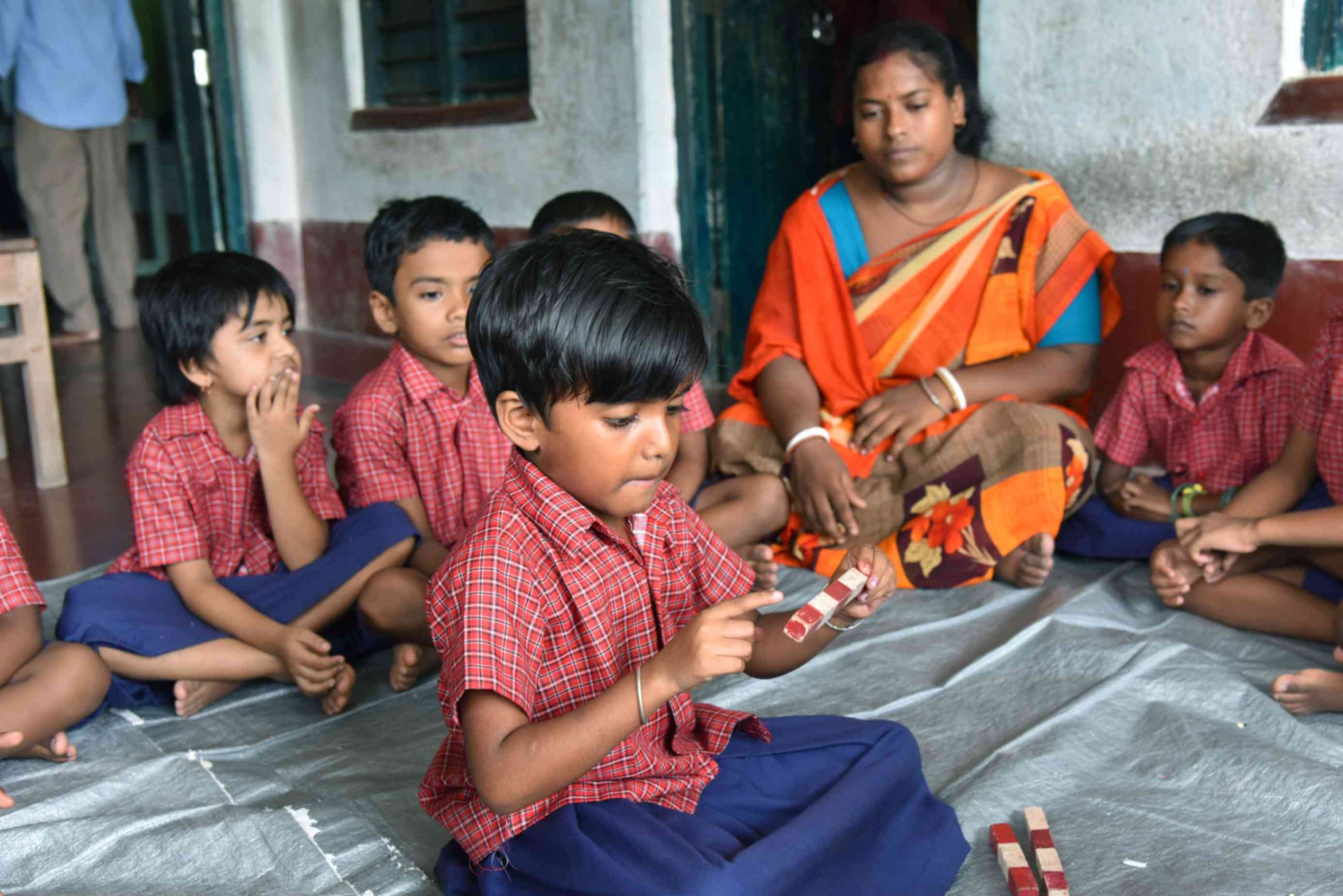Children facing socio-economic disadvantages encounter a unique set of challenges that can significantly impact their socio-emotional well-being. Recognizing and addressing these needs extends beyond mere empathy, it represents a crucial step in fostering holistic development and ensuring equitable opportunities for all.
Fostering a Supportive Environment
In regions like Uttar Pradesh and Rajasthan, where our intervention schools are located, many students hail from families engaged in daily wage labor, farming, and street vending. To effectively address their socio-emotional needs, Mission Education initiated the journey by creating a supportive and secure environment.
In classrooms, teachers champion equality, fostering an inclusive atmosphere where every child feels safe, valued, and embraced. This foundation sets the stage for emotional growth, supported by Smile Foundation’s Teachers’ Training on Classroom Management, which caters to the diverse economic backgrounds of students.
Building Meaningful Relationships
For children from disadvantaged backgrounds, strong relationships with caring adults are pivotal. Teachers, mentors, and community members become crucial figures in building positive connections that offer a profound impact on the socio-emotional development of a child. In Mission Education centers, teachers serve not only as educators but as mentors who identify and nurture each child’s uniqueness. For instance, Tanisha, a student with exceptional skills in arts and crafts, receives tailored support to enhance her talents.
Enhancing Self-esteem and Self-assurance
Children facing external biases and stereotypes are particularly susceptible to eroding self-esteem. Our intervention in the Mewat region challenges norms, supporting an all-girls school where students not only excel academically but also shine in sports and arts. By encouraging and celebrating their talents and interests, these children experience a boost in self-confidence, contributing significantly to their overall socio-emotional growth.
Teaching Empathy and Compassion
The Mission Education programme emphasizes teaching empathy and compassion as essential components of fostering understanding and acceptance. Through value education sessions, students are exposed to diverse perspectives, cultures, and experiences, promoting empathy for others. Celebrating festivals and important days becomes a platform for understanding and appreciating diversity.
Conclusion
Acknowledging and addressing the socio-emotional needs of children from underserved backgrounds is not just an act of compassion, it’s a fundamental stride towards achieving equity in education and social development. Mission Education employs deliberate measures to facilitate strong bonds between students and educators, including comprehensive teacher training sessions, regular events and celebrations, and a holistic approach that includes extracurricular activities.
By recognizing and celebrating the uniqueness of each child, Mission Education is committed to ensuring that every child, regardless of their background, has the opportunity to flourish emotionally and reach their full potential. The multifaceted efforts to nurture the socio-emotional well-being of underserved children underscore the shared responsibility of creating an environment where every child can thrive emotionally and academically.
Writer (Ankit Sharma, Education Programme)









